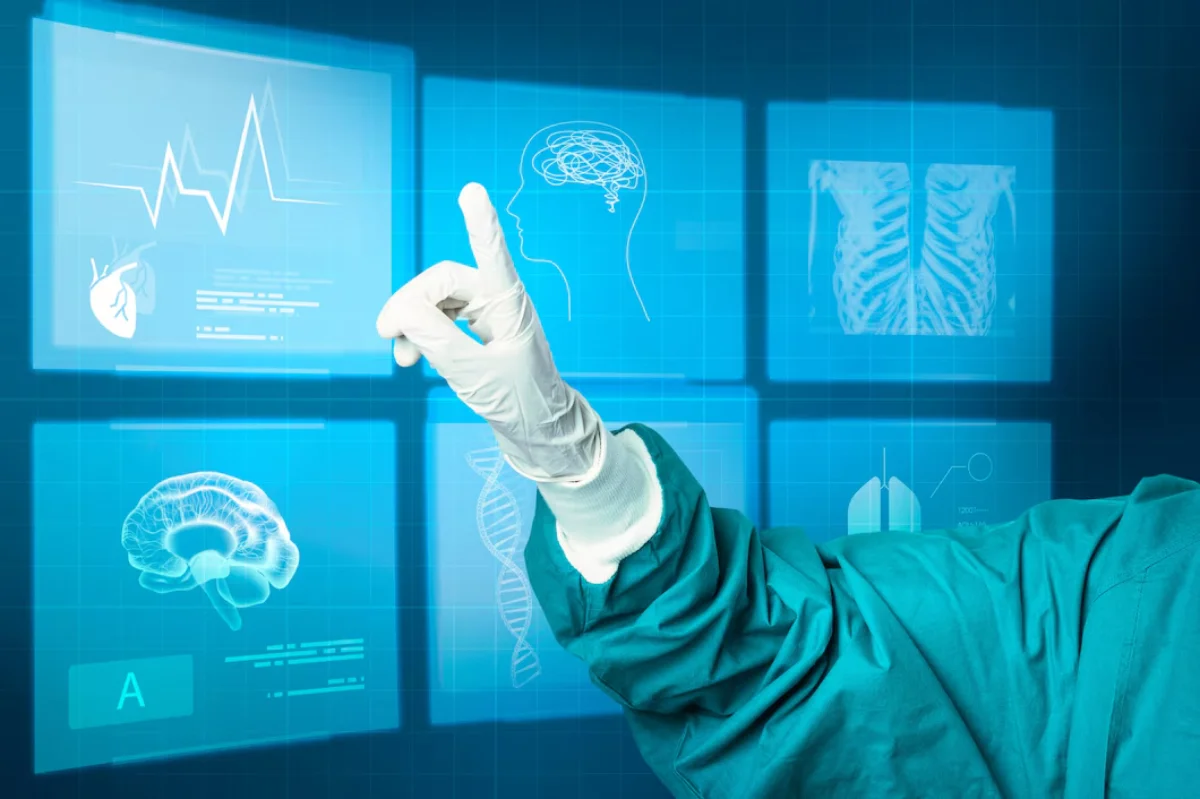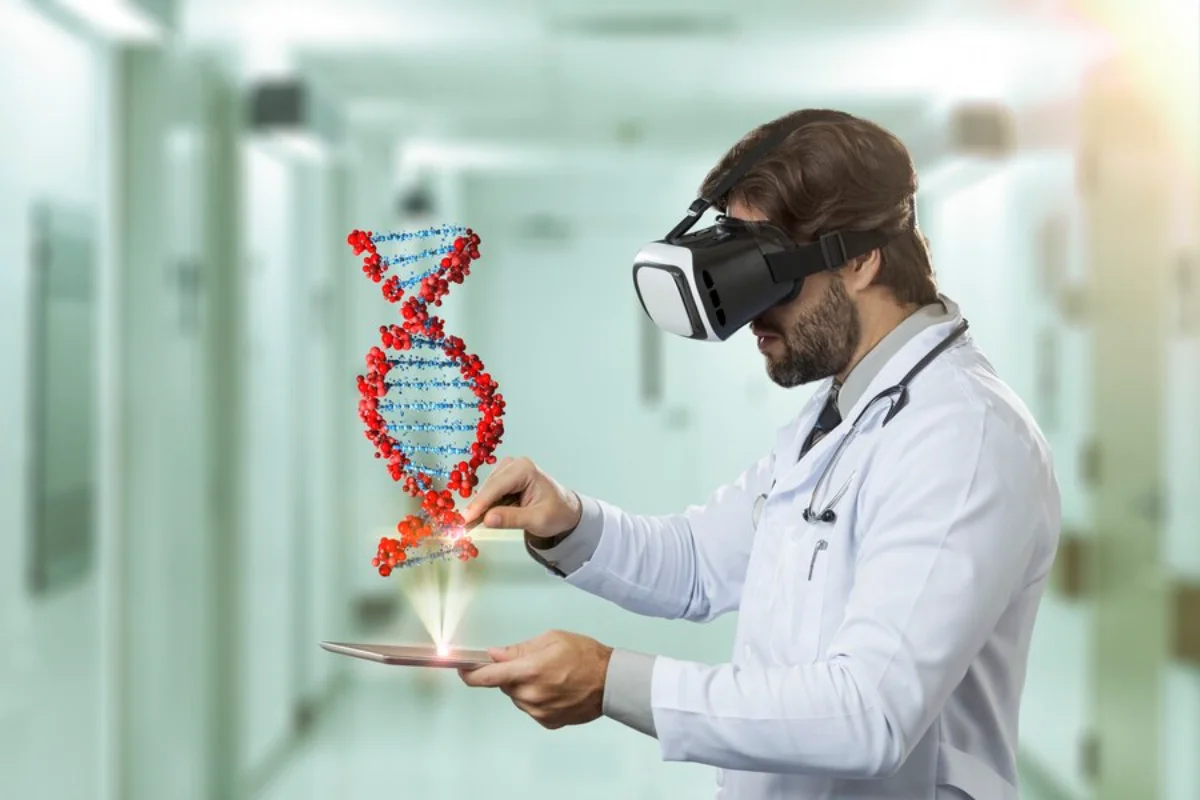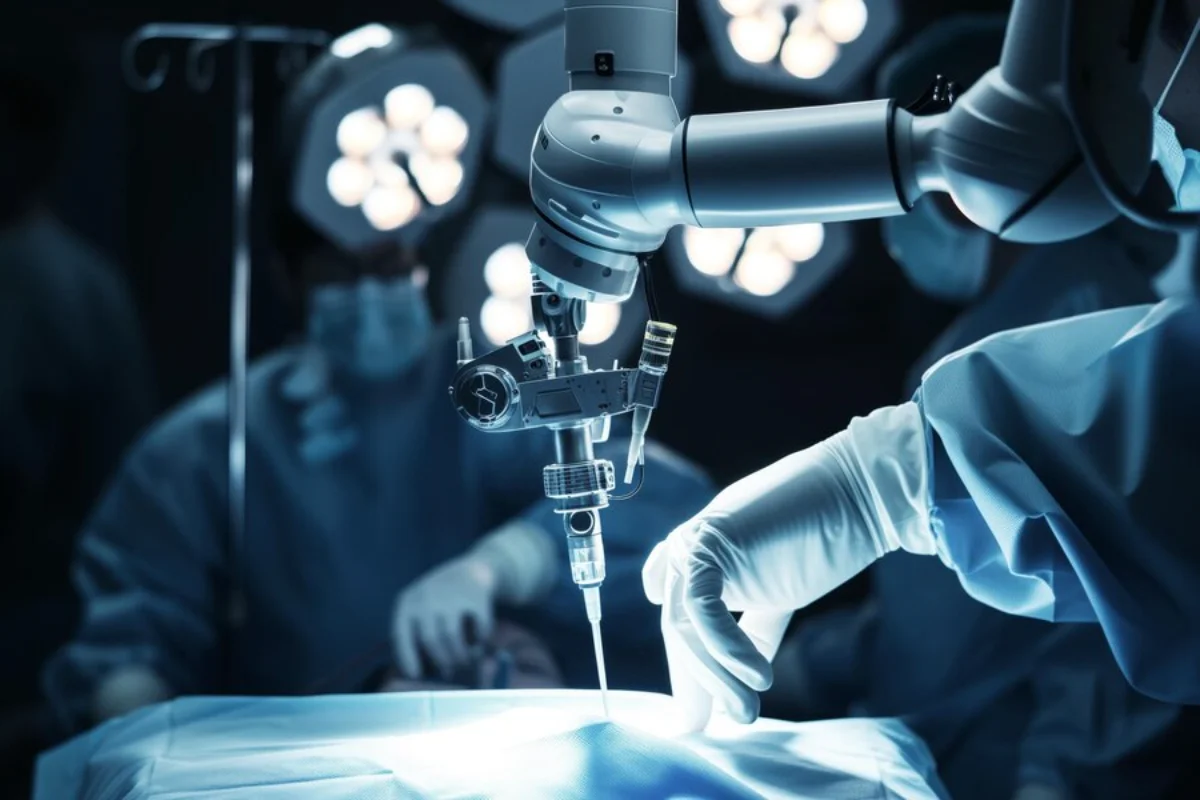
The Impact of AI on Healthcare Innovations
The rapid growth of AI in healthcare is changing the medical field. It leads to better patient results, quicker diagnoses, and more effective treatments. With new medical AI advancements, healthcare providers are using artificial intelligence to improve care, streamline processes, and boost medical research.
From spotting diseases early to robotic surgeries, AI is transforming healthcare. It allows doctors and researchers to work with more precision and speed. This article looks at how AI is changing healthcare, focusing on key innovations and how health tech is making healthcare smarter and more accessible.

The Role of AI in Diagnostics and Early Disease Detection
AI-Powered Medical Imaging
One key medical AI advancement is AI in medical imaging. AI systems can analyse X-rays, MRIs, and CT scans with great accuracy, often finding issues that human radiologists might miss. These AI algorithms learn from vast datasets to spot patterns linked to diseases like cancer, strokes, and lung infections.
For example, AI tools in radiology can detect breast cancer early, allowing for prompt, effective treatments. By using AI in healthcare, doctors can enhance diagnostic accuracy and reduce human error, which improves patient outcomes.
Predictive Analytics in Disease Prevention
AI plays a vital role in health tech by predicting diseases before they occur. By examining a patient’s history, lifestyle, and genetics, AI can pinpoint individuals at high risk for conditions like diabetes, heart disease, or Alzheimer’s.
This predictive analytics capability allows healthcare professionals to offer proactive treatments, potentially preventing severe health issues before they develop. Early disease detection with AI is a game-changer, providing personalised healthcare plans based on data insights.

AI in Drug Discovery and Development
Accelerating Drug Research
The traditional drug discovery process takes a long time and costs a lot. AI-powered research tools speed up this process by analysing molecular structures, identifying potential drugs, and predicting their effectiveness against diseases.
By using medical AI advancements, pharmaceutical companies can shorten research time and deliver life-saving drugs to patients more quickly. AI can evaluate thousands of chemical compounds much faster than humans, leading to quicker identification of promising treatments.
Personalised Medicine
AI is also advancing precision medicine, where treatments are tailored to each patient’s genetic makeup and lifestyle. AI algorithms can sift through large amounts of genetic data to find the best treatments for individual patients. This marks a shift from the traditional “one-size-fits-all” approach, enhancing treatment effectiveness and minimising side effects.

AI-Driven Robotic Surgery
Enhancing Surgical Precision
Robotic-assisted surgery is a significant breakthrough in health tech, allowing for less invasive procedures with greater precision. AI-powered robotic systems, like the Da Vinci Surgical System, help surgeons perform complex operations with better control and accuracy.
These robots analyse patient data and offer real-time guidance during surgery, lowering the risk of human error. The use of AI in healthcare has led to shorter recovery times, fewer complications, and better patient outcomes.
Remote and Autonomous Surgery
Besides assisting surgeons, AI is paving the way for remote surgery. Doctors can operate from different locations using robotic systems. This innovation is especially useful for rural areas with limited access to specialised care.
Researchers are also looking into autonomous robotic surgery, where AI robots perform certain procedures without human help. Although still in early development, this medical AI advancement could transform surgical care in the future.
AI in Patient Care and Hospital Management
Virtual Health Assistants and Chatbots
AI-powered virtual health assistants and chatbots are changing patient care. They provide instant medical advice, help with appointment scheduling, and send medication reminders. These tools reduce the workload for healthcare professionals by managing routine patient inquiries.
For instance, AI chatbots can assess symptoms and suggest whether a patient needs immediate medical help or can manage their condition at home. The integration of AI in healthcare makes medical advice more accessible, improving patient engagement and cutting down unnecessary hospital visits.
Smart Electronic Health Records (EHR)
Managing patient records can be challenging, but AI-driven electronic health record (EHR) systems simplify this task. AI-powered EHRs can:
- Automatically update patient records in real time.
- Warn about possible drug interactions or allergies.
- Offer predictive insights for personalised treatment plans.
By boosting hospital efficiency, AI allows doctors and nurses to focus more on patient care rather than administrative duties.
Ethical Considerations and Challenges of AI in Healthcare
While the advantages of AI in healthcare are clear, challenges must be addressed for responsible use.
Data Privacy and Security
AI relies on large amounts of patient data to work effectively. Protecting this data and ensuring privacy is crucial. Healthcare providers must follow strict regulations, like UK GDPR, to safeguard patient information while benefiting from AI innovations.
Bias in AI Algorithms
AI can reflect biases from the datasets used for training, which may lead to unequal medical diagnoses and treatments. For example, AI models trained on non-diverse data might not accurately diagnose certain groups. To promote fairness in medical AI advancements, developers need diverse training data and regular checks for bias in AI models.
Human-AI Collaboration
AI should support, not replace, healthcare professionals. While AI can automate some tasks and enhance decision-making, human expertise and empathy are irreplaceable in patient care. The future of health tech lies in effective collaboration between AI and healthcare workers to provide the best care possible.
The Future of AI in Healthcare
As AI technology grows, the future of AI in healthcare looks promising. Key trends to watch include:
- AI-powered wearable health devices for real-time monitoring of vital signs.
- Telemedicine advancements for AI-driven remote consultations.
- AI-driven mental health support through virtual assistants.
By embracing these innovations, healthcare providers can improve efficiency, lower costs, and enhance patient care. However, balancing technology with ethical considerations is essential to ensure AI benefits everyone equally.
AI: Shaping the Future of Healthcare
AI is transforming the healthcare industry. It brings significant changes to diagnostics, drug discovery, surgery, and patient care. Medical AI advancements are improving precision, efficiency, and accessibility, making treatments more effective and personalised.
Despite challenges like data privacy and algorithmic bias, the ongoing development of health tech promises a future where AI solutions enhance healthcare outcomes for all. By using AI responsibly and ensuring ethical oversight, we can unlock its full potential for a smarter and more patient-centred healthcare system.


